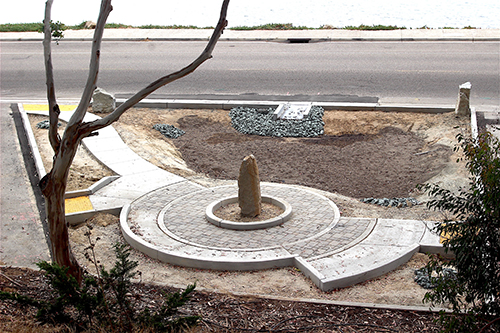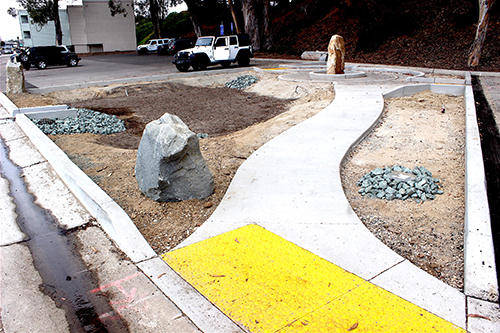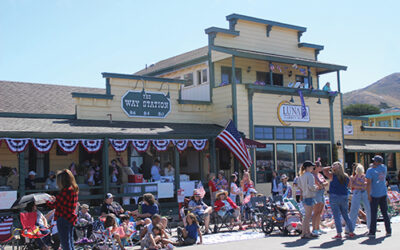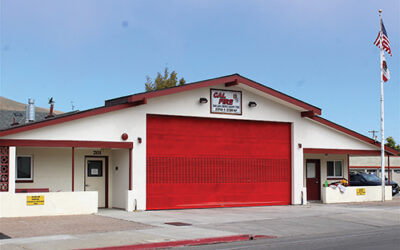The Tidelands Pocket Park will capture and filter runoff from a boat wash-down station before it empties into the bay.
The City of Morro Bay is putting finishing touches on a project that will help keep the bay a little cleaner and do so in a passive, attractive and functional manner.
The City’s Environmental Program Manager, Damaris Hansen, has led the project, which started with a visit from the Regional Water Quality Control Board (RWQCB). Regulators wanted the City to capture and filter runoff from a boat wash-down station before it empties into the bay.
Hansen landed a $57,000 grant through the Local Government Commission or LGC, a statewide non-profit group “who works throughout California to support livable communities,” Hansen said in an email. LGC tapped the National Recreation and Park Association for the money.
The plan was to build a small “pocket park” that would have a “storm water rain garden” to “treat runoff from the parking lot, and boat rinse station, which currently enters the Bay without treatment,” Hansen said.
So how does this thing work? “Rain gardens are a designed, depressed area with plants and engineered soil that soak up storm water while filtering out pollutants in storm water,” Hansen explained. “The way the storm water rain garden works is by capturing the storm water, which carries sediments and pollutants, as this water travels down the street gutters.

“The storm water will be diverted into the rain garden, where the water spreads out into the rain garden and the plants trap litter and coarse sediments. The water then seeps down into the soil media below, trapping fine sediments and pollutants.
“The cleaned water is then collected in the underground pipes and then flows into the bay.”
No energy is needed for the passive filtering system but eventually the City will have to go in and clean out the sediments. A similar system was built in the Cloisters Park where a small pond filled with reeds captures runoff from Hwy 1 and the Cloisters neighborhoods.
It is now in need of dredging, which Hansen said will be very expensive.
Back in September 2019, the City advertised for bids on the Tidelands Pocket Park job. “Unfortunately,” Hansen said at the time, “the bids received were well above our budgeted amount. Therefore, the City is currently looking into completing portions of the construction project and hiring out other portions to hopefully be able to come in within our budget.”
With the pocket park now almost finished, Hansen said they are awaiting delivery of an arched bench that will be installed. The bench has three spots left for memorial plaques, she said, and the City is working down a waiting list to see if anyone wants to have the memorial brass plaque for a loved one go onto the bench.
“This will look a lot better when we get the plants in and spruce it up a little,” Hansen said. They have two Cypress trees they will be planting there as well. So far the grant has paid for it all, she said, with the City maintenance crew doing the lion’s share of the work. They did bring in a contractor to pour the cement paths and the curbs.
The boat wash station has also been reopened, and Hansen said the water from that facility is draining into the catch basin as designed.
The pocket park has a few decorative features, boulders arranged around the perimeter with an ADA accessible walking path. Rick Engineering did the original design.
“The grant requires a targeted education and outreach component to a specific group,” Hansen said, “given the small size of the park, seniors were chosen as the target group. The grant team held an outreach meeting at the Senior Center on March 15 (2019) and received feedback as to what features the seniors would like to see at this park. Rick Engineering developed the design and has incorporated feedback from this meeting into the design.”



